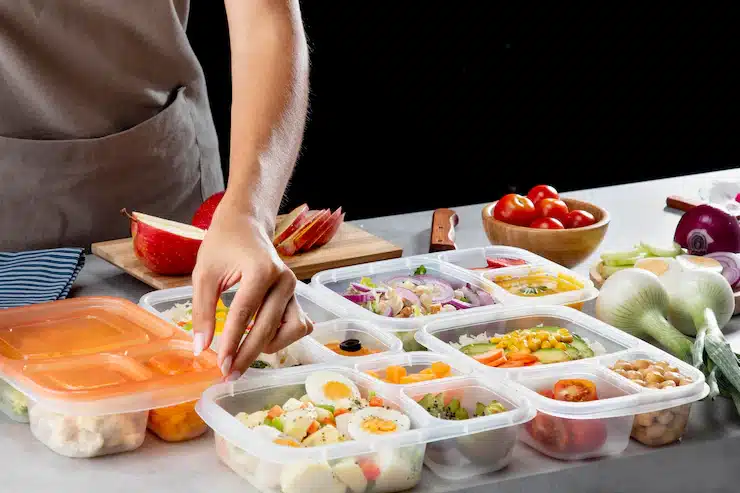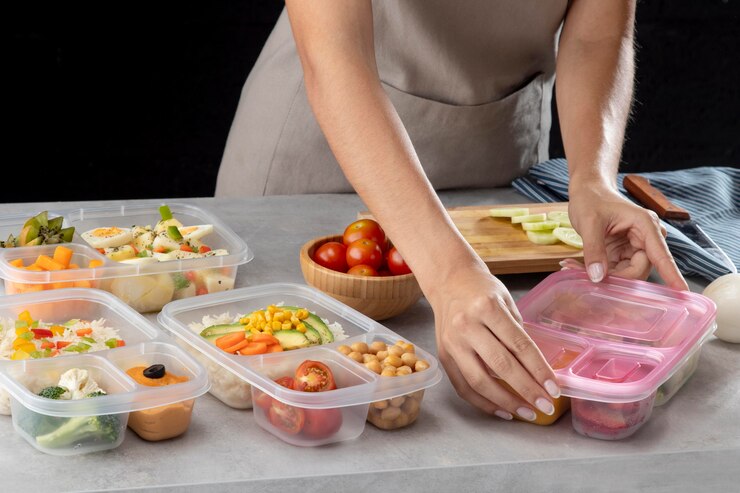Habits to Help Achieve Healthy EatingExistare are many habits which will assist you in Achieve Healthy Eating
Attracting healthy eating means adopting six simple habits into your lifestyle today that can help you reach it, such as packing your own lunch and meal prepping. With just a bit of extra planning you could see immediate results! Start incorporating these habits today into your lifestyle – they won’t take long until they start paying dividends!
Achieve Healthy Eating:-
1. Start Meal Prepping

Meal prepping can help get you in the healthy eating mindset and save both money and time on grocery bills. Meal prepping allows you to set out a set amount of food per meal that has already been portioned out, making it easier to stick to a healthier diet without overindulging or going off track with portions. Meal prepping will also allow you to track how much you’re actually consuming over the course of each week!
Meal prepping can also help you manage weight more easily; meal prepping is also a great way to be more environmentally-friendly as when purchasing in bulk, leftovers may result in creating meals for the following week instead of going straight into landfills.
2. Read Food Labels

Food labels provide a fantastic opportunity to gain more information about what you are consuming, while at the same time helping ensure you’re making healthy choices. When trying to lose or maintain weight, paying particular attention to the calories and fat content of each food item you purchase will be especially useful.
If you suffer from high blood pressure, insulin resistance, or any other diet-related illness, reading the sodium content labels on foods you purchase is also key in making healthier decisions. Writing down this information could even come in handy at the grocery store!
3. Pack Your Own Lunch

By packing your own lunch, you will gain more control of what you eat – especially helpful if your office environment includes access to unhealthy options in the fridge. If your goal is to lose weight, pack a meal that contains lower calorie counts. For those living with diet-related illnesses or taking medications that affect sodium intake, this step could also prove particularly important.
Prepping healthy lunches doesn’t need to be complicated: simply pack salads, sandwiches and soups! Make life even simpler by prepping it the night before for easier consumption while at work and reduce the chance of overeating unhealthy foods during your shift.
4. Eat More Fruits And Vegetables

One of the easiest and healthiest ways to achieve balanced eating is through increasing fruit and vegetable consumption. Not only are these rich in essential vitamins and minerals, they’re also low in calories and sodium content – two major considerations if your goal is weight loss. If that’s your aim too, make sure that you’re eating an appropriate amount of fruits and vegetables and also consider what other sources provide calories as part of your calorie count.
As an example, one cup of broccoli has about 40 calories while one cup of mac and cheese has over 600. Try different ways of enjoying fruits and vegetables such as roasting them as toppings on sandwiches. Or use fruits and veggies to create smoothies and juices!
5. Eat Slow

Eating slow is one of the easiest and most effective habits you can adopt to ensure healthy eating habits. Though it may seem counterintuitive to slow down when trying to put food on the table quickly, eating slowly allows your brain to signal your body that you’re full so that it stops eating instead of overeating.
Eat slowly can enhance your experience of your meal and enhance its flavors and textures, creating a more pleasurable dining experience. Eating slowly also aids digestion which in turn can improve overall health; so next time you sit down for dinner try eating slowly and enjoying every bite – it may take some practice but can become an extremely useful habit!
6. Drink More Water
Hydration is one of the key elements of healthy eating. You should strive to drink enough water regardless of what diet you follow, but especially when trying to lose weight or suffering from diet-related illnesses. Water helps prevent cravings which is essential if trying to shed extra pounds.
If you have high blood pressure, diabetes, or any other diet-related illness, drinking enough water is key. People with diabetes are usually advised to consume nine cups a day. With these six simple habits you’ll soon be on your way towards healthy eating! From packing your lunch yourself and reading labels to following a balanced diet while feeling your best!


